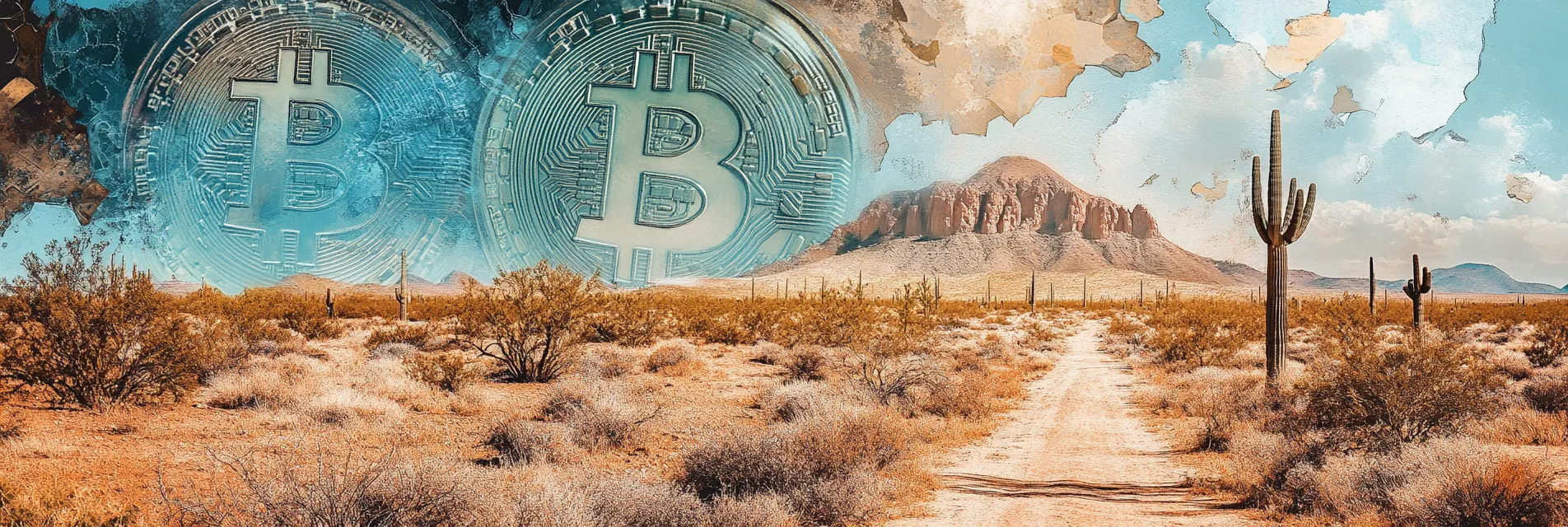TLDR
- Arizona’s bill, S.B. 1373, has passed the state House committee.
- The bill will allocate 10% of seized funds to digital assets.
- However, Arizona’s governor is vetoing every bill that hits her desk until legislation involving disability funding is passed.
Arizona could potentially set a precedent for integrating digital assets into government finances with its Strategic Digital Assets Reserve Bill (S.B. 1373). It has a cousin, called S.B. 1025, that’s focused on Bitcoin. But there’s a major hurdle in the way.
If you’re new to crypto or just beginning your blockchain journey, here’s a breakdown of what’s happening, what it means, and what hurdles lie ahead. Let’s get after it.
What Is S.B. 1373 All About?
Arizona’s S.B. 1373 passed a key milestone by clearing the House committee. It proposes creating a “Strategic Digital Assets Reserve Fund,” which would serve as a state-managed reserve of cryptocurrency and blockchain-based assets.
It will allow for up to 10% of seized assets (confiscated by law enforcement from criminals and from legal forfeitures) to hold Bitcoin, stablecoins, NFTs, and other digital tokens.
The bill also allows the state treasurer to manage this fund actively. This means depositing crypto into approved systems (like qualified custody solutions or state-registered exchange-traded products) and even loaning the assets to earn additional revenue.
The state is looking to monetize the crypto it holds. However, there’s a safety net set at 10% per fiscal year, capping the treasurer’s investment activity to mitigate risk.
If passed, this legislation would pave the way for Arizona to diversify its financial holdings in a big way.
Why It Matters to Crypto Users
You might be wondering, “Okay, Arizona’s playing around with crypto. How does this impact me?” Fair question.
Whether you’re into NFTs or casually eyeing bitcoin, Arizona’s approach sends important ripples through the broader blockchain economy.
Here’s why it matters:
- Legitimization of Crypto: If passed, S.B. 1373 could position Arizona as a trailblazer for how governments incorporate crypto into state operations. It’s more than just holding Bitcoin. It’s about creating frameworks others could follow.
- Retail User Investments: Greater involvement of state governments in crypto can boost confidence in blockchain technology.
- New Questions of Regulation: Anytime the government gets involved with crypto, discussions around regulation follow. Arizona’s reserve fund could set standards for how public entities manage digital assets.
Not Arizona’s First Crypto Rodeo
S.B. 1373 isn’t Arizona’s only move into crypto legislation. Another bill, the Arizona Strategic Bitcoin Reserve Act (S.B. 1025), recently passed through the House on April 1. This one allows the state to allocate up to 10% of public funds into “virtual currency holdings.”
The key difference? While S.B. 1025 focuses narrowly on bitcoin as an investment vehicle, S.B. 1373 casts a wider net. It covers various digital assets, from stablecoins to NFTs. Together, these bills suggest Arizona lawmakers are betting big on the blockchain revolution.
Now, before you get too excited, there’s a catch.
The Elephant in the Room
Arizona’s ambitious crypto bills face a major political hurdle. Governor Katie Hobbs has issued a veto threat for all legislation until a disability funding measure is passed. Yep, all legislation.
This puts S.B. 1373 and S.B. 1025 in legislative limbo. Until the funding issue is resolved, these bills are stuck waiting for their chance at a final floor vote. Even if they pass the House and Senate, the governor’s veto threat looms overhead.
It’s hard to say if these bills will make it to the finish line. But what’s certain is Arizona’s willingness to explore how crypto can play a role in state-level finances. Even with the governor’s veto threat, these bills have sparked an important conversation about cryptocurrency in public governance.For blockchain newbies and crypto enthusiasts, Arizona offers a case study in the potential intersection between government and cryptocurrency. Whether or not the Arizona crypto reserve becomes law, more state legislators, from North Carolina up to Kentucky, are taking it seriously. And that’s a good thing.












